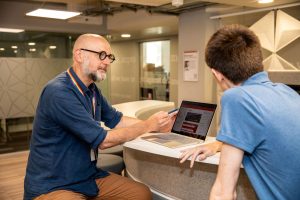Tonight, we are upgrading our Library Management System. During the upgrade on Monday 26 June, between 19:00 and midnight, (after the Library buildings are closed) some services will be unavailable.

You will still be able to …
- Search the Library catalogue, Enterprise.
- Access all our E-resources – so any e-books or e-journals you find on the catalogue will still be available via the ‘Click here to access’ links.
- Use Summon for online access to journal articles, book chapters, and much more!
But you won’t be able to …
- See the current location of a physical Library item, so you won’t be able to tell if it has been borrowed.
- Access your online Library account to renew your loans or pay fines.
- Request items from Closed Access or the Off-site Store.
- Request an Inter-Library Loan.
The upgrade is planned to be finished by Tuesday 27 June, but the system will be ‘at risk’ for the rest of the week whilst our Systems Team make sure everything is working correctly. We will let you know if Enterprise will be unavailable for longer than initially planned.
If you have trouble accessing e-resources, you can contact the E-resources Team at eresourceshelp@reading.ac.uk or you can fill in a Problem Report Form.
If you want to talk to someone about your account, you can contact the Library at library@reading.ac.uk.
Lewis Mills – Library Systems Team




 This month is LGBT+ History month, an opportunity to learn about lesbian, gay, bisexual, trans, and non-binary history, and we wanted to share some resources with you all…
This month is LGBT+ History month, an opportunity to learn about lesbian, gay, bisexual, trans, and non-binary history, and we wanted to share some resources with you all…


